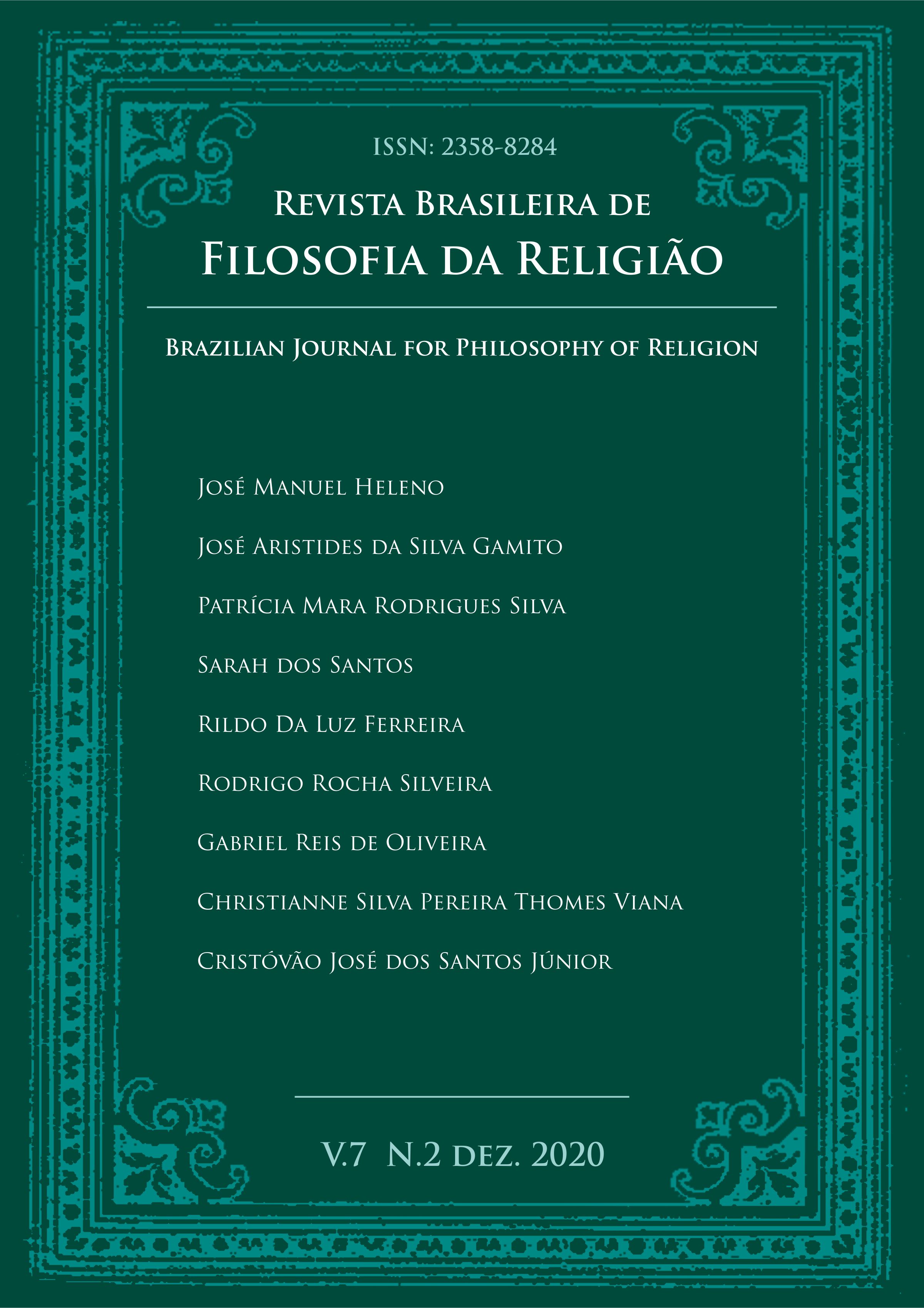RELIGIOUS THINKING IN ROSENZWEIG AND HEIDEGGER
SIMILITUDES AND CONTRAPOSITIONS
DOI:
https://doi.org/10.26512/2358-82842020e31213Abstract
The discussion and reflection on religious thought in Rosenzweig and Heidegger is not recent. Including the possible similarities and differences between the authors. Rosenzweig will start from the assumption that religion takes place in concrete experience, and Heidegger in Facticity. In this space, we will analyze some of the analogous and contradictory aspects about the religious thoughts of these German philosophers, whether by assimilation or homeland nationalism; and yet, how these would extend in the field of religious education. For Rosenzweig, this path would allow the possible transformation of a theory of religion into a pedagogy of religion, because, for him, understanding Judaism is to practice Judaism, but not as a religion in itself. For him, it is the personal experience that founds his thought and this experience is expressed in the language of Judaism, an arm that justifies his existentialism. In Heidegger, the task of philosophy therefore postulates the overcoming of the aforementioned epistemological matrix, which should, through the task of thought, turn to the temporality of the times of being through its factual life. In both, the path of language promotes the place of being.
Downloads
References
CARUSO, M. “A Religião sem Deus: contribuição do jovem Heidegger para a filosofia
da religião”. Revista dos Alunos do Programa de Pós-graduação em Ciência da Religião
– UFJF. 2013. Disponível em:
Acesso em: 15 junho 2019.
HEIDEGGER, M. Fenomenologia da Vida Religiosa. Trad. Paulo Giachini et al. Editora
Vozes. São Paulo, 2010.
HEIDEGGER, M. Ser e tempo (SZ [= Sein und Zeit]). Edição em alemão e português.
Tradução organização, nota prévia, anexos e notas por Fausto Castilho. São Paulo;
Petrópolis: Editora Unicamp; Vozes, 2012b.
HEIDEGGER, M. Phänomenologie des religiösen Lebens. Frankfurt: Klostermann,
GUARNIERI, M.C.M. “O ensino religioso em Franz Rosenzweig”. Revista Lusófona de
Ciência das Religiões, n. 12, nov. 2013. ISSN 2183-3737. Disponível em:
<http://revistas.ulusofona.pt/index.php/cienciareligioes/article/view/4009>. Acesso em:
junho 2019.
GUTTMANN, J. A filosofia do judaísmo: a história da filosofia judaica desde os
tempos bíblicos até Franz Rosenzweig. Trad. J. Guinsburg. São Paulo: Perspectiva, 2003.
ROSENZWEIG, F. La Estrella de la Redención. Trad. Miguel Garcia-Barò. Ediciones
Sigueme: Salamanca, 2006, 2ª ed.
HENRIQUES, M. C. Franz Rosenzweig e o Pensamento Dialógico. Universidade
Católica Editora. Lisboa. PT. E-book disponível pela KOBO:2017.
MAC DOWELL, J. A. A gênese da ontologia fundamental de M. Heidegger: ensaio de
caracterização do modo de pensar de Sein und Zeit. São Paulo: Loyola, 1993.
SILVEIRA, F. C. Dasein e linguagem em Heidegger: do discurso ao monólogo. 2007.
f. Universidade Federal do Ceará, Programa de Pós-graduação em Filosofia, Fortaleza
(CE), 2007. Disponível:
http://bdtd.ibict.br/vufind/Record/UFC_2457e45bbaa5707dc0901a34d2a2559e Acesso
em: 15 jun. 2019.
Downloads
Published
How to Cite
Issue
Section
License
Copyright (c) 2021 Brazilian Journal for Philosophy of Religion

This work is licensed under a Creative Commons Attribution 4.0 International License.

